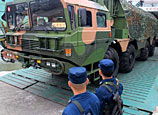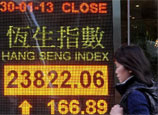
On Jan. 29, the first meeting of cross-strait cooperation platform for securities and futures regulations was held in Taipei. The meeting resulted in consensus on a number of affairs and made major breakthroughs in promoting two-way flow of funds and institutional access in the cross-strait capital market.
Taiwan compatriots can now buy A-series shares in Mainland
Previously, the mainland states that overseas traders are not allowed to invest in A-series shares but B-series only, which have small trading volume and considerable volatility and risks.
Taiwanese who reside in the mainland in long-term have been hoping to invest in A-series shares since long ago.
At the press conference, a person from Taiwan financial community who has struggled in the mainland capital market for many years expressed his joy to the media: "Finally we do not need to try everything to find 'permanent residence' and are able to enter the A-series share market fair and square!" In the past, in order to invest in A-series shares, many Taiwanese tried their best to find "permanent residence" because of the restrictions. The practice was highly risky and often resulted in legal disputes. After a short period of downturn, the A-series are now bouncing upside, attracting a lot of traders to approach. "When I go back home I will tell my wife right away: Let us stop depositing the money in bank but invest in A-shares!"
The Taiwan side has also sent out gift packages.
Huang Tianmu, chief of the Insurance Bureau of Taiwan Securities Regulatory Commission announced that Taiwan will open up the capital market to eligible natural persons from the mainland.
Ye Hongru, manager of MSCI Taiwan BRIC Fund said possibility for investors from the two sides to invest in the cross-strait stock market declared the arrival of the era of big circulation of cross-strait funds.
Taiwan-funded security traders may go in advance for a foretaste
Tong Daochi, responsible person at Mainland Securities Regulatory Commission said at the press conference that the mainland allows eligible Taiwan-funded securities companies to establish a qualified full license joint venture securities company in Shanghai, Fujian, and Shenzhen.
The Taiwan-funded security company may hold up to 51 percent stake in the joint venture and the counterparty may not necessarily be a mainland security company.
In addition, Taiwan securities traders can also set up consulting companies under the joint venture with the mainland security company and hold a maximum of 49 percent stock, and up to 50 percent in a number of financial reform pilot areas.
This is regarded as one of the biggest gift packages sent to Taiwan brokers. Huang Liyue, chairman of Taishin Securities said this is certainly bullish in the case of saturated brokerage market on the island.
Currently, the 15 Taiwan-funded securities active in the mainland are all subject to stock holding proportion restrictions and will not be able to smoothly conduct business even within ten years after disembarking. He said: "I am looking forward to seeing the good outcome and hope to have a foretaste when the market is truly opened up."
Taiwan's offshore RMB center
Just as the cross-strait RMB clearing mechanism has been launched, China Securities Regulatory Commission granted Taiwan a number of "bullish" policies in terms of two-way funds flow: sequential relaxation of investment quota restrictions for Mainland's qualified domestic institutional investors (QDII) to be raised from 500 million to 1 billion U.S. dollars in the initial stage; active study concerning the investment in Taiwan's capital market by mainland's qualified domestic individual investors (QDII2); in addition, Taiwan's financial industry hopes to carry out RMB Qualified Foreign Institutional Investors (RQFII) pilots with initial investment quota of about 100 billion yuan, to which the Mainland will also give active consideration.
Huang Qiyuan, director general of Taiwan Merge and Acquisition and Private Equity Association made analysis and said this is not an alphabet game but the construction project of a new platform that penetrates the primary and secondary markets, which has profound meaning and requires complex supporting measures. These measures build the important pipeline for backflow of the yuan.
China Securities Regulatory Commission has granted an even larger degree of openness in regard of two-way flow to Taiwan than to Hong Kong. For instance, RQFII quota for Taiwan in the initial stage is up to 100 billion yuan, while that for Hong Kong was 70 billion yuan, which fully demonstrated the mainland's sincerity and goodwill towards the other side of the strait."
Read the Chinese version at: 两岸股民互投股市,快了, Source: People's Daily Overseas Edition, Author: Li Weina and Wu Yaming


















![]()
